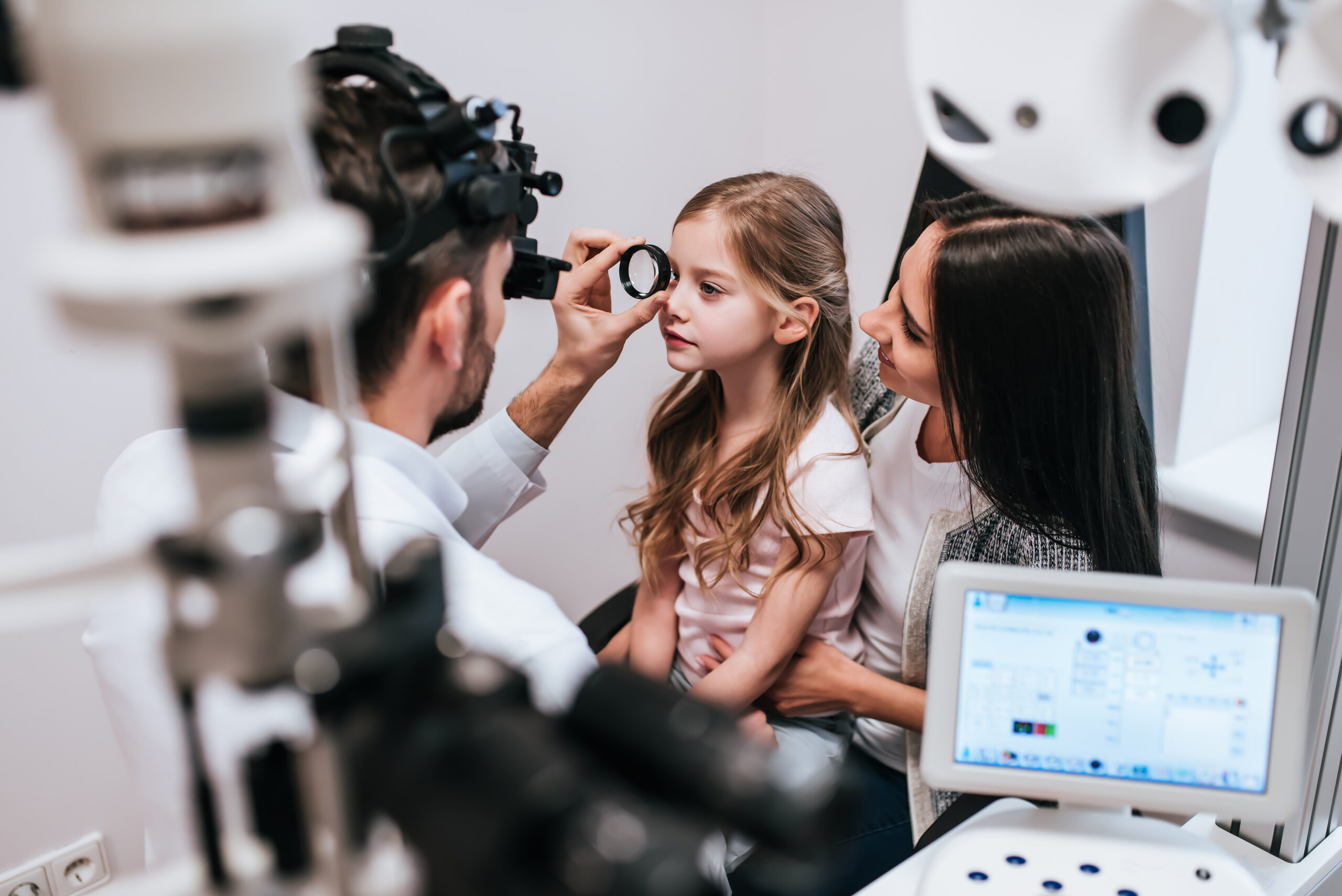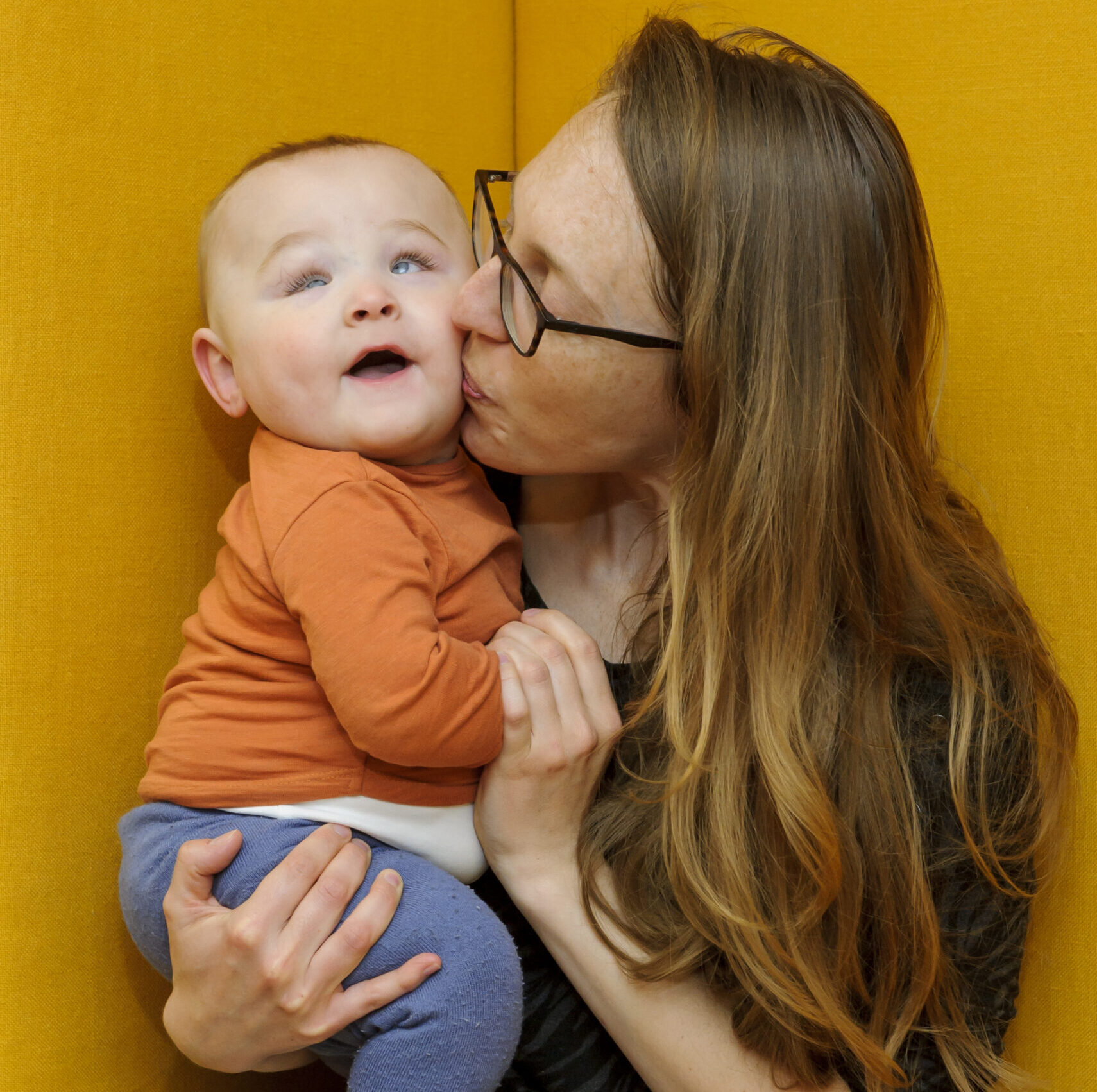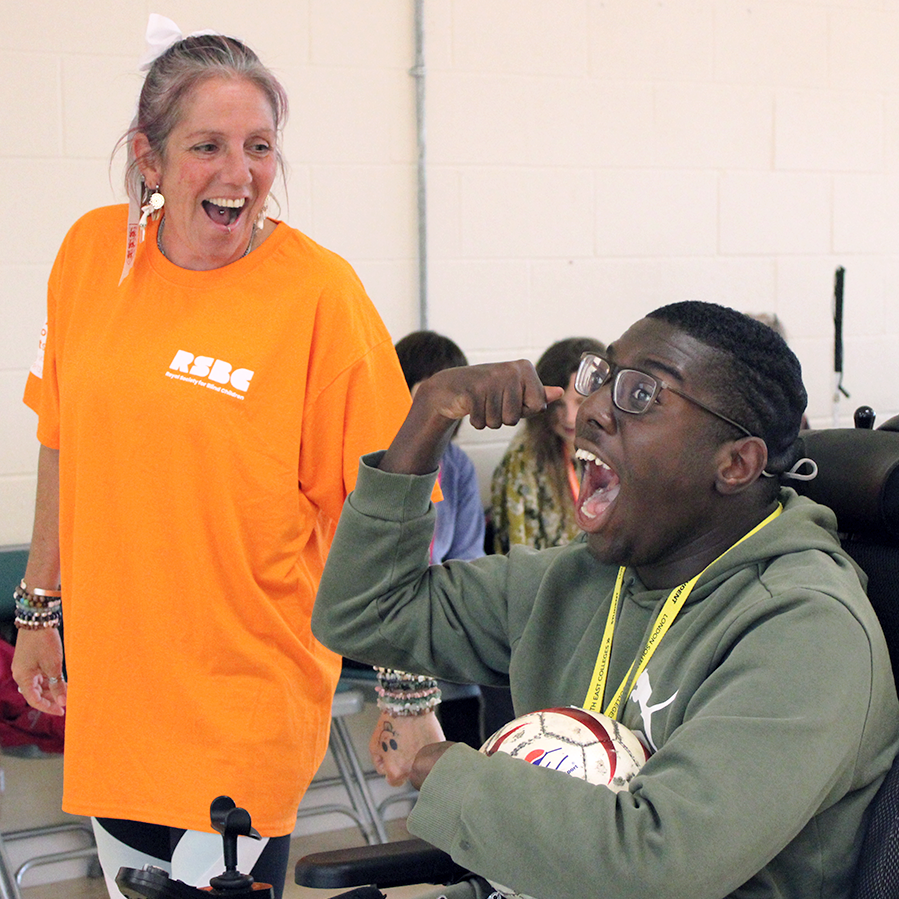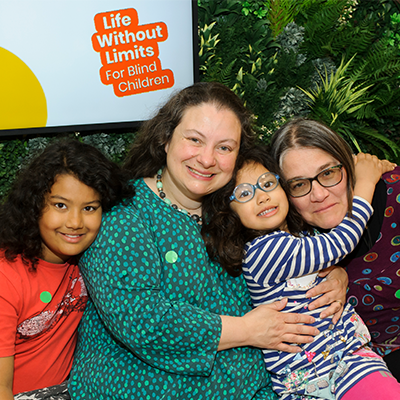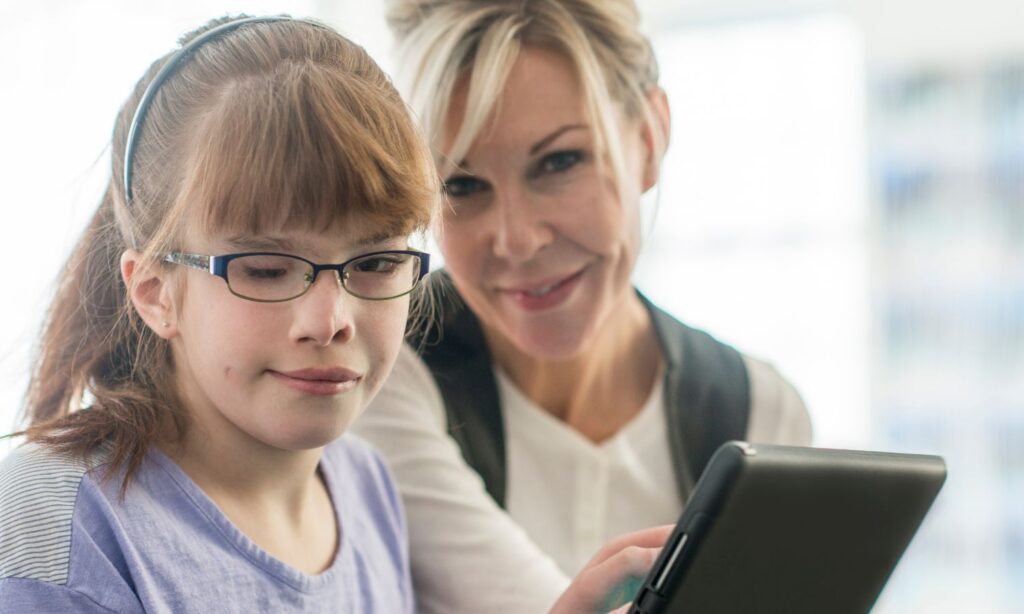The challenges of transitioning to secondary school
Moving from primary to secondary school is an exciting time for most children. But it can also be a really scary time, and even more so if you have a vision impairment.
You will probably be used to being in the same classroom for the day, sitting at the same desk, with all of your resources to hand. You’re used to having the same teacher for all of your subjects, and you know how to get around school safely. You also know the children in your class. Everything’s familiar to you.
The thought of moving somewhere new and somewhere bigger could make you feel scared and anxious. You might worry about how you’ll find your way around your new school and that you might get lost, and be concerned about how you’ll make new friends. Your new school might be further away, too, and you could have to travel there on your own. All of these worries can make you feel really anxious.
Practical tips for a smooth transition
Here are a few tips that might help to make things a little easier for you:
- Write a list of your worries down on paper, and talk them through with your parents or another adult. Have a think about your strengths and how these might help you manage the move to your new school, too. As well as feeling anxious, you might also feel quite excited about moving schools, so have a think about all of the things you’re also looking forward to and write these down as well.
- Try to get organised before you start school. Make sure that you’re ready, and have everything you need. Most schools will give you a list of things to get before you start – try not to do this last minute, because this can make you feel more stressed.
- Plan your route to school. You might need to do a few practice runs before you start if you’ll eventually be travelling alone to school, and this will help you feel more confident. If you need any extra help, a Habilitation Officer can support you.
- You’ll probably already have visited your new school on a transition day, and so you may have some idea of its layout. Before you start, take a look at the school website for maps and virtual tours. If you’re worried about how you’ll find your way around, there’s an app called Clew which is designed for people who are blind or partially sighted and can be used indoors. It remembers locations, and helps you return to them. You’ll probably be given a school map on your first day, too. You may also be allowed to leave lessons a few minutes early to help you move around school when it’s less busy.
- When you start school, don’t be scared to ask for help. You may get lost – but most Year 7’s do in the first few weeks! It will take time to get used to your new school, plus it can be really tiring.
- Your Vision Impairment Teacher should come and visit you soon after you start. Make sure they know if you’re finding it difficult to access learning resources. You should also know who the school SENDCo is. They can make sure that teachers know what your needs are and what they need to do to meet them (such as giving you things in larger print).
- Making new friends can take time. Just be yourself, and you’ll make friends with people like you. Try and join some school clubs, so that you’ll meet others with similar interests. Sometimes, we need to make an extra effort to make friends and this can take us out of our comfort zone. Try and smile lots and make it your goal just to say ‘hello’. Genuine friendships can come gradually, so try not to feel sad if you don’t feel you’re making friends quickly.
- If friends from primary school have gone to different schools, make an effort to keep in touch and arrange catchups. You can compare notes on your new schools and even introduce your new friends to your old ones.
- Finally, give everything time. The first few weeks might feel really difficult, but it doesn’t mean it’ll always feel like that. Things will get easier. Always talk to your parents, carers, your tutor or teachers at school if you’re finding it hard. Most schools have a Wellbeing Centre, which you can pop in to and chat to the staff there. They’ll listen to your worries and work with you and the teaching staff to make sure you feel safe and happy in school.
Support from RSBC Family Practitioners
RSBC Family Practitioner, Jody, says, “I often work together with children who are really worried about the move to secondary school. Things they’re concerned about can include how they’ll travel there, how they’ll manage in a big school, how they’ll cope moving between classrooms when it’s busy, and how they’ll ‘fit in’ and make new friends.
“Family Practitioners help children talk these worries through. We build on their self-esteem and confidence, so that they feel more ready for the big steps they’ll be taking. We continue to support them through this transition, so that they know they’ll have advice and guidance when they’re at their new school. We can also help them manage any ongoing worries and difficulties that they might be experiencing.”
Thinking about your move to secondary school, asking questions, and talking about any worries that you may have can help you to feel more ready to make the big step to Year 7.
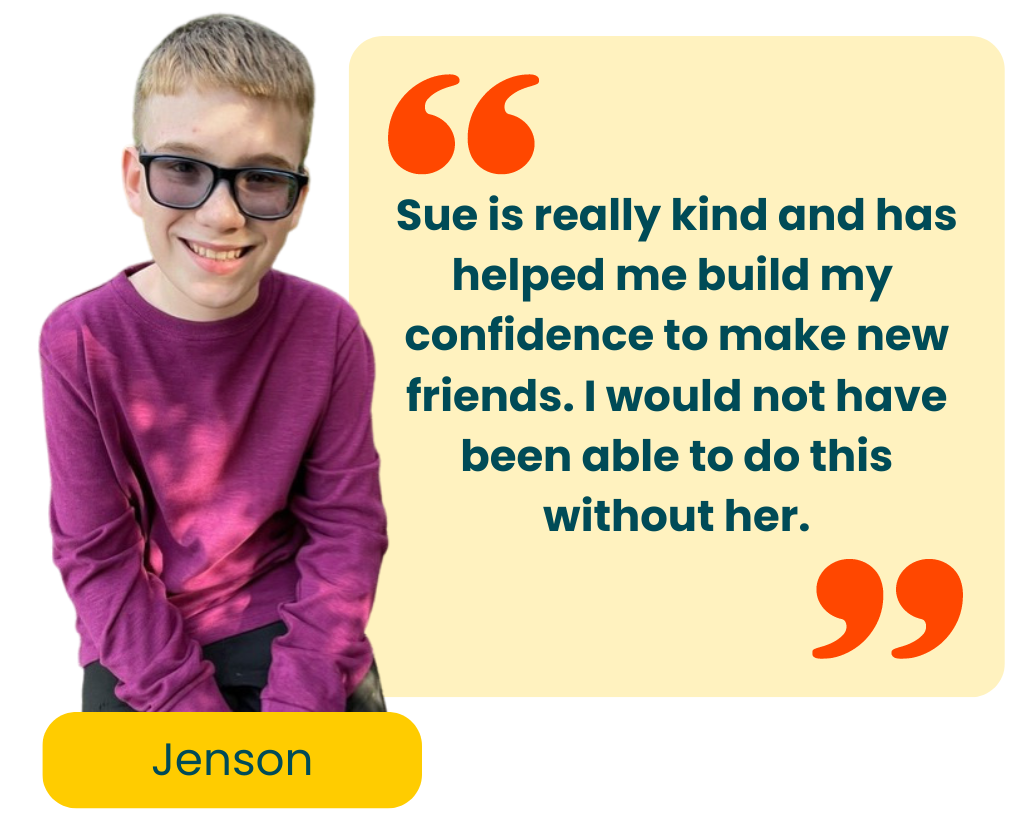
Find out more
Find out more about RSBC’s Moving On Up group, where you can chat to other young people who are moving to Year 7 in September, on our Moving On Up page.
How you could help…
You can help remove worry, fear and dread from more blind and partially sighted children who will be transitioning to secondary school this Summer. Your urgent donation could help more children access ‘Moving On Up’. Or it could provide a child with crucial one-to-one-support from a Family Practitioner.
You may also like
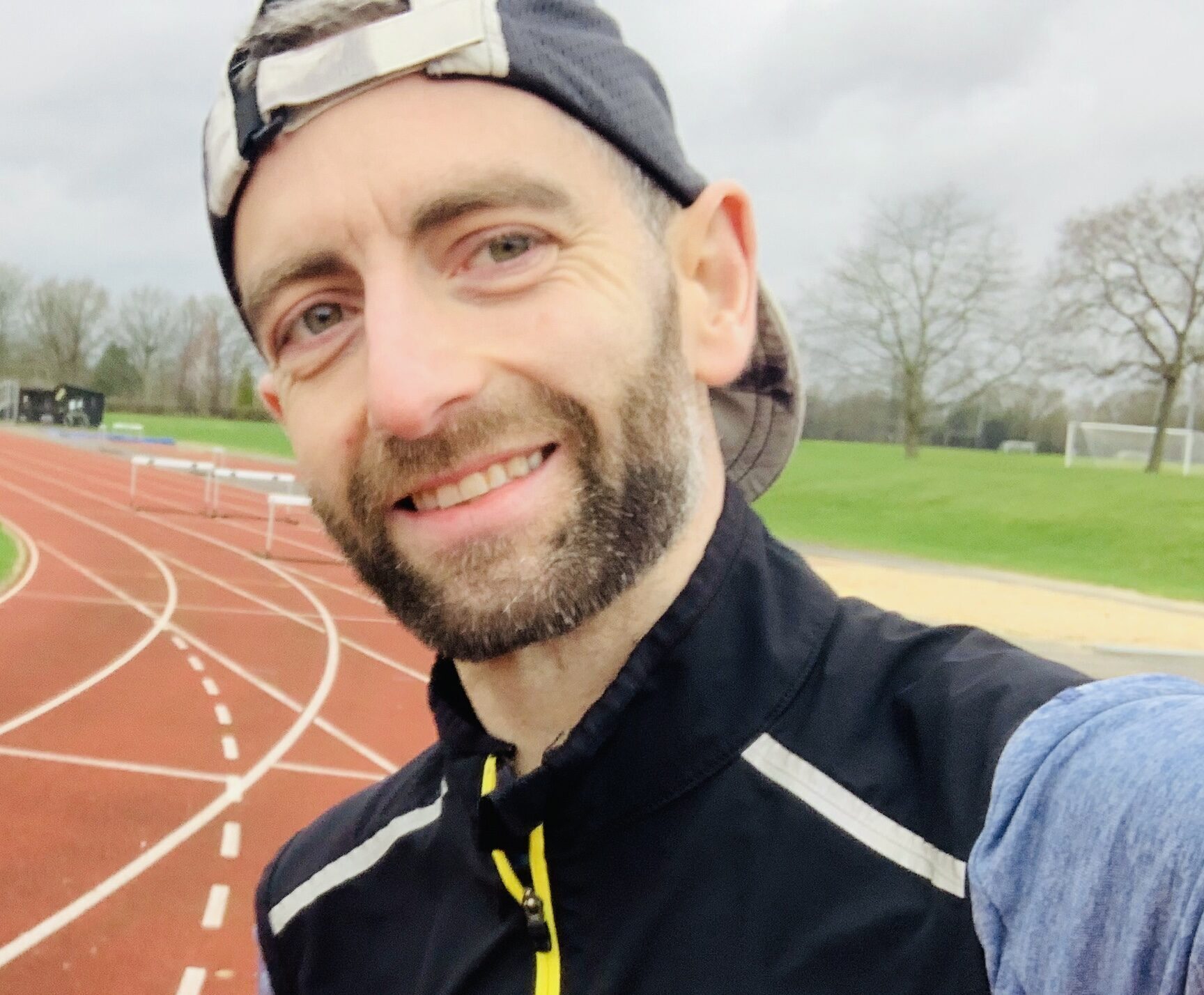
No categories April 14, 2025
Nick’s path to the London Marathon
This April, Nick will be running the London Marathon for RSBC. We sat down with him to find out why he wanted to run for us, and learn a little bit more about his journey so far.
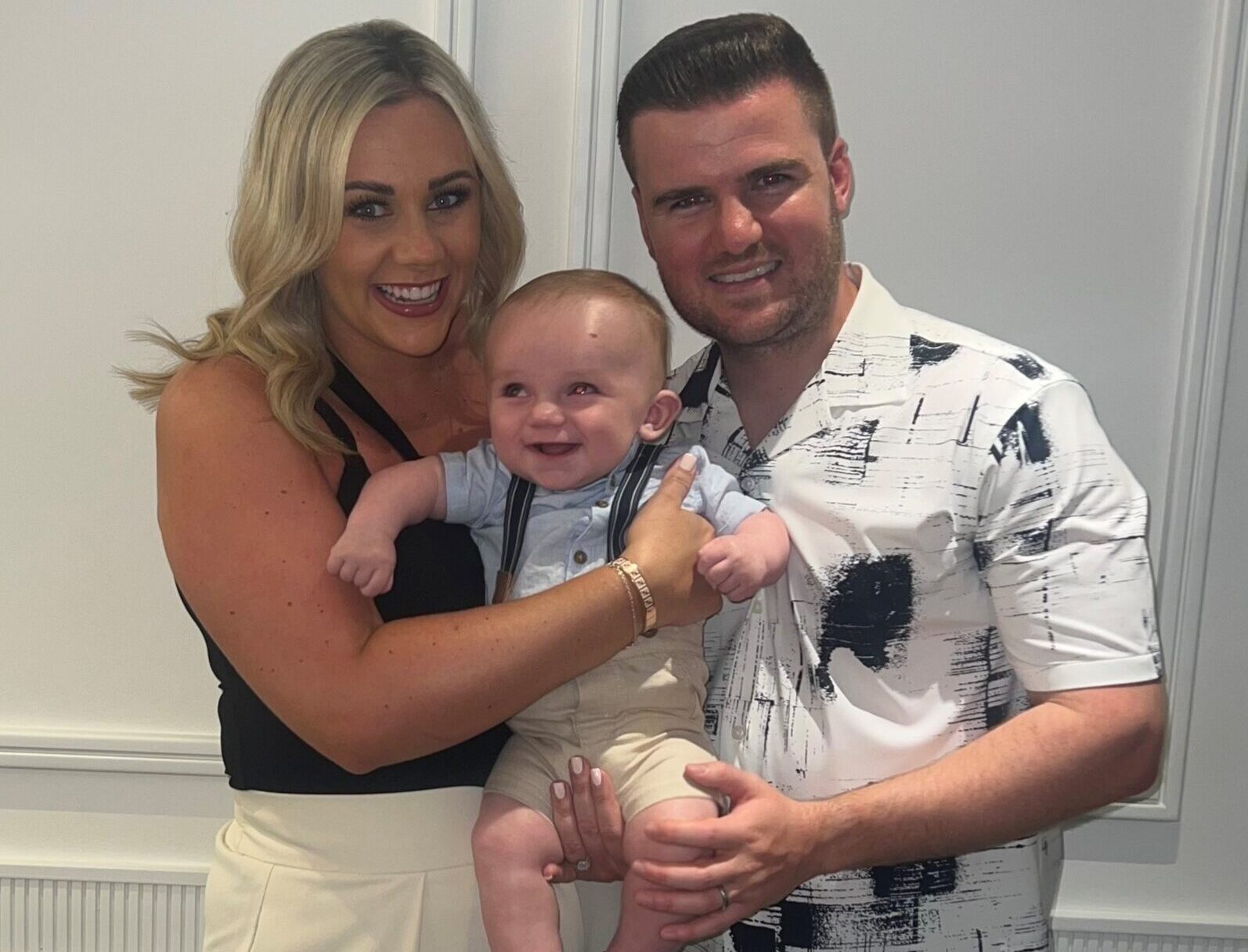
No categories April 9, 2025
Running for Albie
Albie was born with severe sight impairment, having been diagnosed when he was 4 months old. His mum and dad, Abbie and Lewis, are both running the 2025 London Marathon to raise funds for RSBC – the first time that two parents of a child supported by the charity have run together at this famous […]
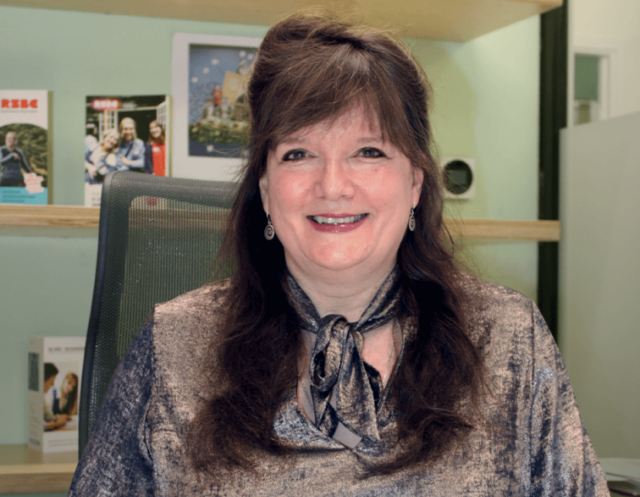
No categories March 28, 2025
Mother’s Day: our CEO shares her story
Happy Mother’s Day to everyone celebrating! In recognition of this special day, we sat down with our CEO, Julie, to hear about her relationship with her daughter, Saime, who is registered blind.
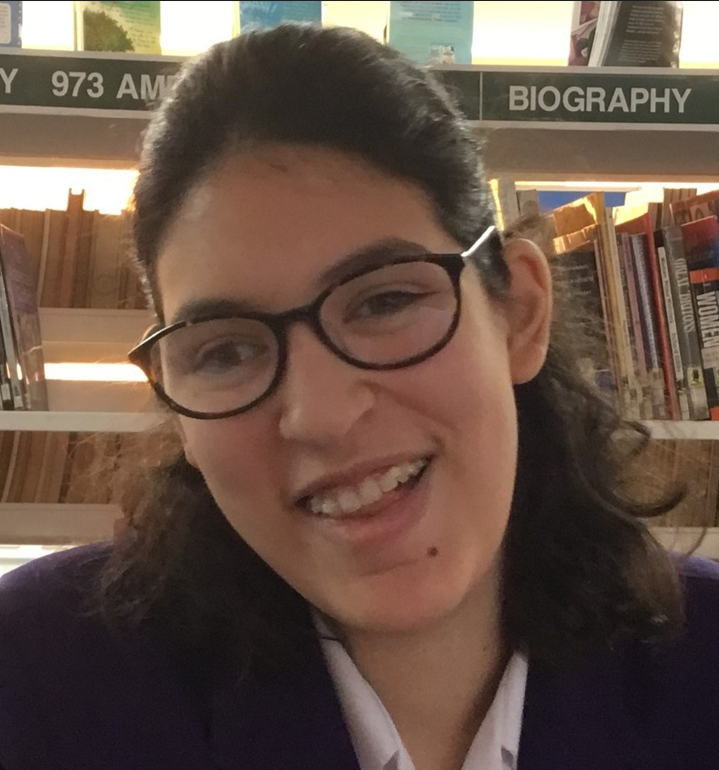
No categories March 20, 2025
What our young poets have to say this World Poetry Day
We were delighted to host two workshop sessions with renowned poet Dave Steele recently, and they certainly fired up the imaginations of the young people who attended! We’re pleased to be able to showcase the incredible talent that came out of the workshops in the beautiful poems written by those attending below.
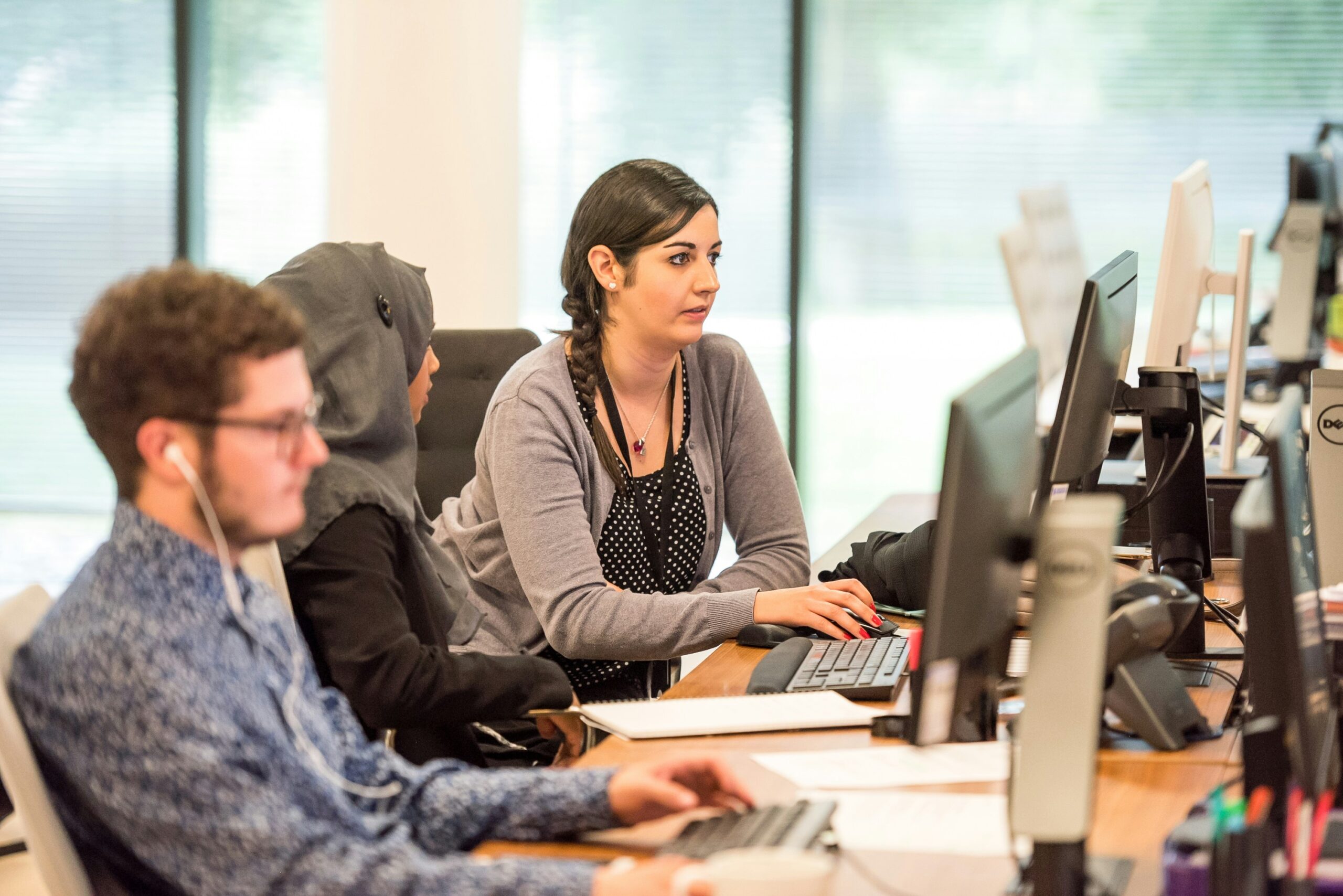
No categories March 10, 2025
RSBC’s 5 key reforms to support young people into work
The government has just announced plans for a major shakeup of the welfare system, with £6bn of proposed cuts. Personal Independence Payments (PIP) are a lifeline for many people in our community. We understand the system needs reform, and that tough times can call for tough measures. But cutting back on PIP without making it […]
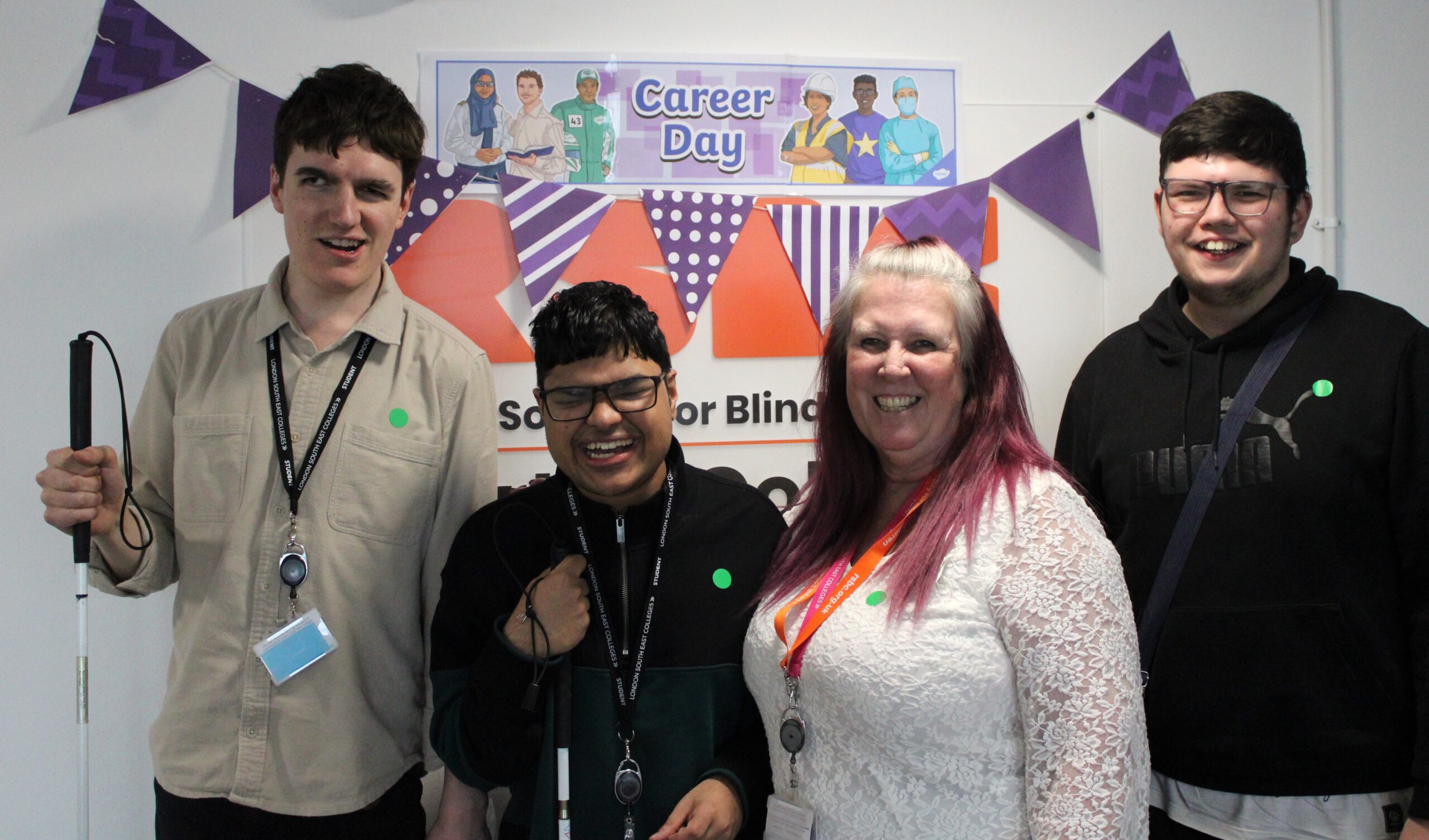
No categories March 7, 2025
Dorton College careers day: giving our students the confidence to shine
Too often, young people living with a vision impairment aren’t given the career opportunities they deserve. That’s why RSBC’s Dorton College hosted a careers day recently, inviting external speakers to inspire our students and help provide them with the tools they need to enter the world of work.
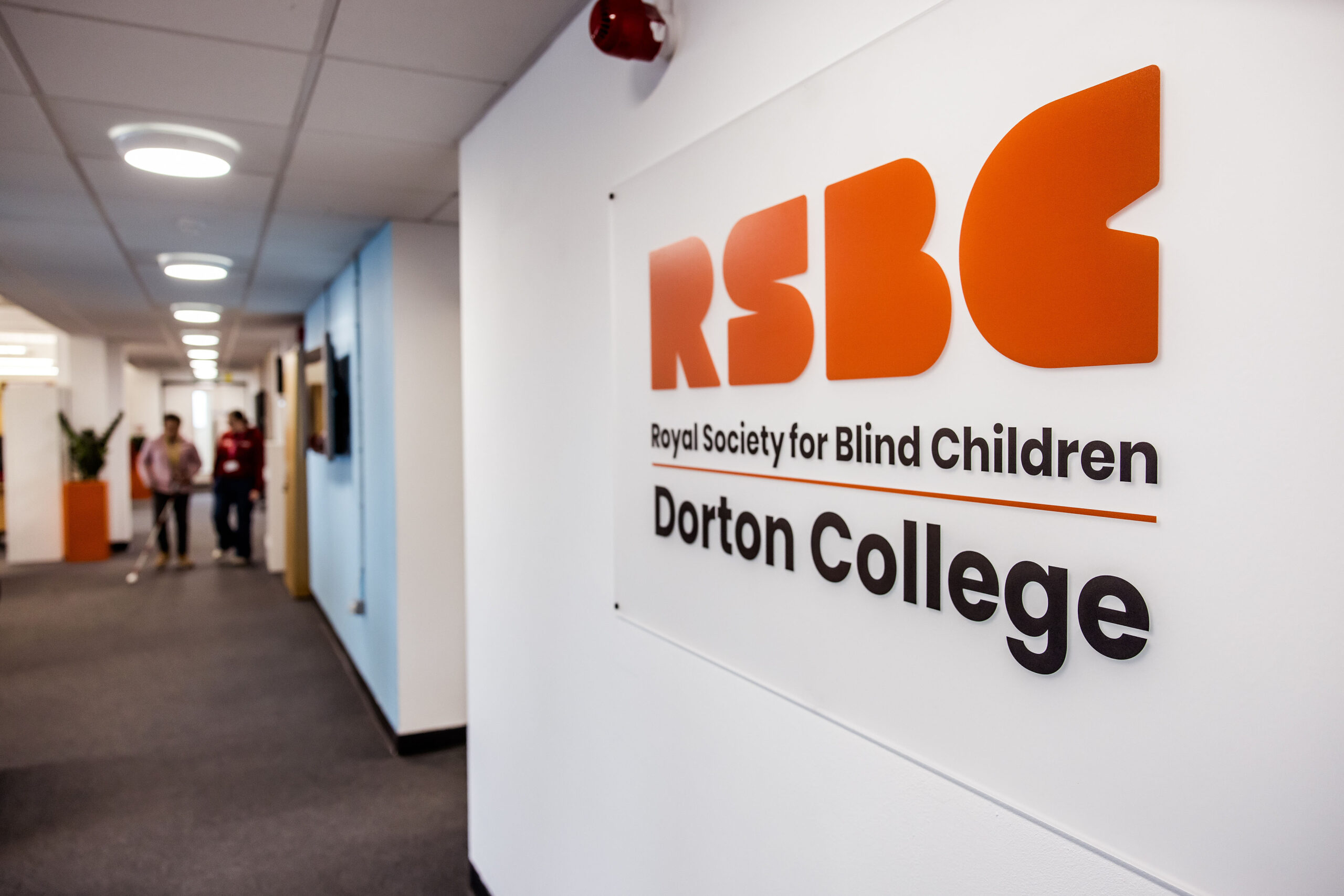
No categories March 5, 2025
Gary O’Donoghue’s win at the RTS Television Journalism Awards
Each year, the Royal Television Society hosts the Television Journalism Awards, celebrating the most prestigious change-makers in the British journalism space.
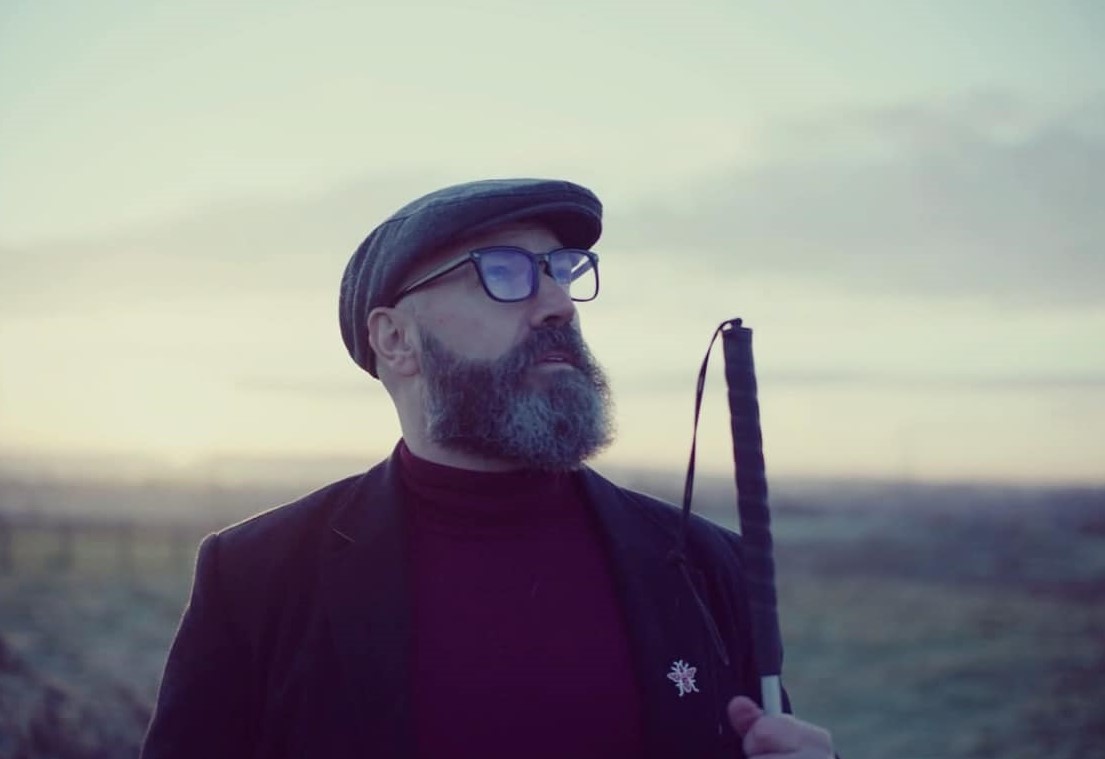
No categories March 4, 2025
Young people unlock their imagination at The Blind Poet’s workshops
Dave Steele, popularly known as The Blind Poet, is an internationally acclaimed and award-winning poet, author, speaker and singer – and an advocate for people with vision impairment.

No categories March 3, 2025
Helping young people be heard: RSBC’s Youth Voice Strategy Day
Recently, RSBC’s Youth Forum, Young Ambassadors and members of the RSBC team came together for a Youth Voice Strategy Day at our Life Without Limits Centre in London. The mission was simple: young people were tasked with coming up with their own objectives and create a roadmap for the future, which would help RSBC identify […]

No categories February 19, 2025
The Roundhouse becomes London’s first venue to use Navilens – with RSBC’s support
Iconic music and performing arts venue, the Roundhouse in Camden, has provided creative space that empowers people and communities since the 1960s. Its team is focused on unleashing the creative potential of young people and artists, giving them the opportunity to experiment, develop their skills, and be part of unforgettable moments with a lasting impact.
